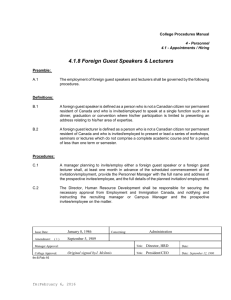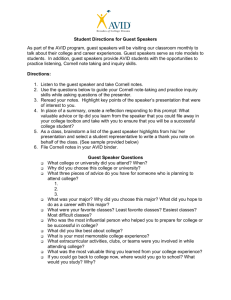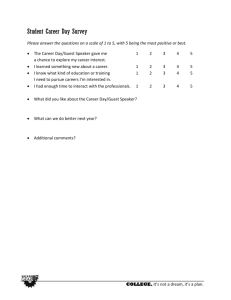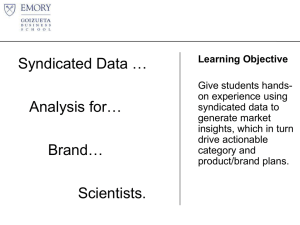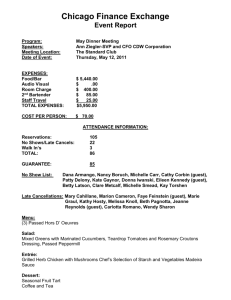Using Guest Speakers in the Classroom
advertisement
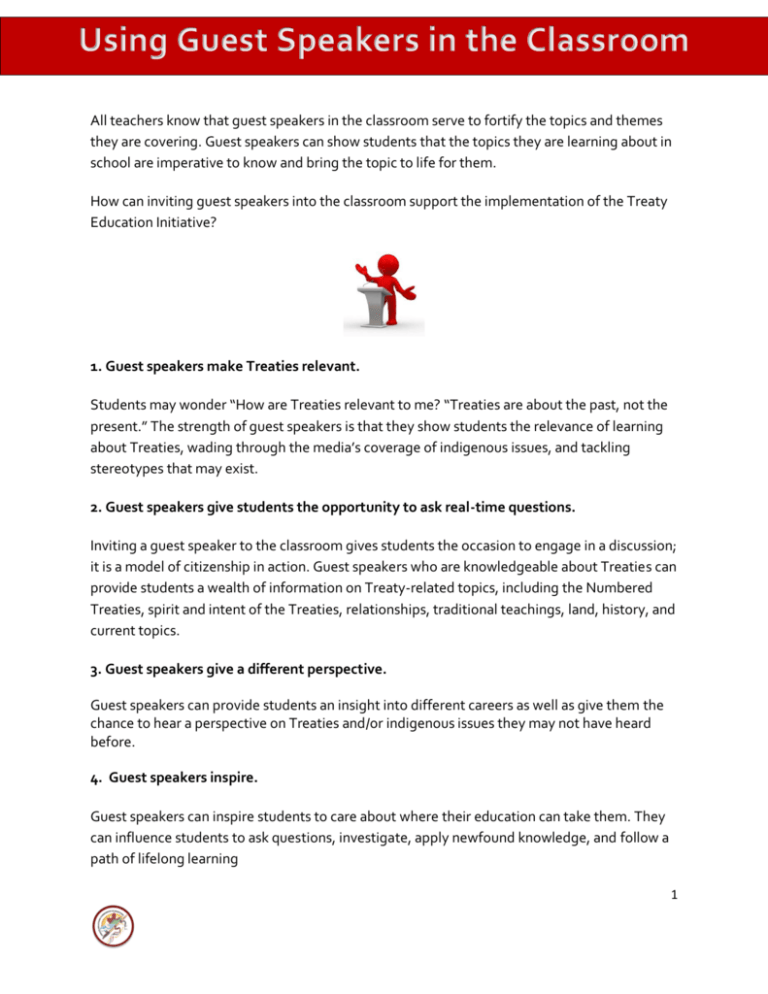
All teachers know that guest speakers in the classroom serve to fortify the topics and themes they are covering. Guest speakers can show students that the topics they are learning about in school are imperative to know and bring the topic to life for them. How can inviting guest speakers into the classroom support the implementation of the Treaty Education Initiative? 1. Guest speakers make Treaties relevant. Students may wonder “How are Treaties relevant to me? “Treaties are about the past, not the present.” The strength of guest speakers is that they show students the relevance of learning about Treaties, wading through the media’s coverage of indigenous issues, and tackling stereotypes that may exist. 2. Guest speakers give students the opportunity to ask real-time questions. Inviting a guest speaker to the classroom gives students the occasion to engage in a discussion; it is a model of citizenship in action. Guest speakers who are knowledgeable about Treaties can provide students a wealth of information on Treaty-related topics, including the Numbered Treaties, spirit and intent of the Treaties, relationships, traditional teachings, land, history, and current topics. 3. Guest speakers give a different perspective. Guest speakers can provide students an insight into different careers as well as give them the chance to hear a perspective on Treaties and/or indigenous issues they may not have heard before. 4. Guest speakers inspire. Guest speakers can inspire students to care about where their education can take them. They can influence students to ask questions, investigate, apply newfound knowledge, and follow a path of lifelong learning 1 Treaty Relations Commission of Manitoba: Speakers’ Bureau The TRCM Speakers’ Bureau provides dialogue and information sharing to create an understanding about the historical and contemporary issues that relate to Treaty. Presentations speak to both the Canadian and First Nation perspective of the Treaties to balance information Manitobans receive from various outlets in relation to Treaty. Speakers’ Bureau objectives: promote the concept “We Are All Treaty People”; raise awareness of Treaties and their importance; raise awareness of the rights and obligations associated with Treaties; facilitate discussion on Treaties; and enhance the Treaty relationship. You may access the Speakers’ Bureau at www.trcm.ca or by calling 204- How to Get the Most from Your Guest Speaker 1. Prepare Your Students on the Topic All students will benefit from some preparation as to the Treaty-related subject matter your guest will discuss. Your students can focus more on understanding how the speaker is presenting the information rather than the content itself. 2. Prepare Your Students on the Speaker It is also a good idea to give your students some advanced information about who will be speaking to them. Is he an expert on the subject? What makes her an expert? The more you can prepare your students on what they will hear and experience, the more enriching the session will be. 3. Prepare Your Students on Behaviour Communicate with your students ahead of time what behaviour is expected when listening to a guest speaker. They should listen quietly. They can ask questions, but it is most polite to wait until the end of the presentation to do so. They should put away cell phones and other devices. It is appropriate to take notes while the presenter is speaking. Once your students understand this, they will be ready to listen to a guest speaker attentively and respectfully. 2 4. Have Your Students Prepare Questions Thinking of questions for a guest speaker can be very challenging to students, especially if you ask them to do it on the spot. Therefore, it is beneficial to have your students write some follow-up questions for your speaker before the day he or she is scheduled to come to class. After presenting your students with information about the speaker and the Treaty-related topic which she will discuss, have each student write three to five follow up questions for your guest. 5. Debrief Your Students Debriefing is important both for making sure your students understood the Treaty presentation as well as preparing them for future presentations. After your speaker has left and your class has asked their questions, ask your students how they felt about the experience. Did they enjoy the guest speaker? What new information did they learn? What was the most enjoyable part for them? 3
